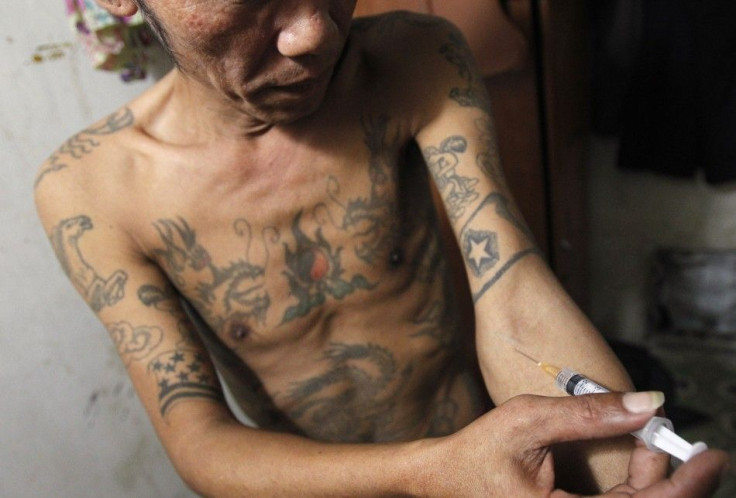Heroin Vaccine Latest Attempt to Help Addicts Break the Habit

Heroin addiction may become as preventable as the mumps or measles, thanks to a new vaccine under development that blocks drug receptors in the brain, researchers announced Thursday.
With the treatment having already shown positive results in mice, researchers from the National Institute of Psychiatry in Mexico announced Thursday that they're preparing the heroin vaccine for human trials.
It would be a vaccine for people who are serious addicts, who have not had success with other treatments and decide to use this application to get away from drugs, Maria Elena Medina, director of the institute, told Reuters.
Researchers patented the drug in the United States.
Heroin is an opiate produced from morphine extracted from the seed pods of opium poppy plants. The drug gives users pain relief, but can become highly addictive.
Heroin addiction affects tens of thousands of users each year. In a U.S. survey, 0.2 percent of survey participants reported use of heroin in the last month, according to 2010 National Survey on Drug Use and Health.
In 2010, an estimated 140,000 Americans age 12 or older tried heroin for the first time, according to the report.
Opiate addiction is commonly described as chasing the dragon since addicts use more and more heroin to achieve a perfect high.
Kicking the habit is difficult because of severe withdrawal symptoms that include pain, tremors, vomiting, paranoia and depression.
Doctors often use behavior therapies alongside opiate replacements that include methadone, buprenorphine, naltrexone or in the case of potential overdoses, naloxone.
http://www.drugabuse.gov/publications/infofacts/heroin
Opiate replacements are typically longer lasting than illicit drugs, which helps users regain a normal life. These drugs are released slowly into the body and cut cravings while providing less of a high than heroin. Doctors diminish the dose over time until the replacement is no longer needed.
This vaccine is not the first to target substance abuse. A drug called TA-CD aimed at fighting cocaine addiction is currently undergoing clinical trials.
TA-CD stimulates antibodies that destroy cocaine molecules in the body. It also prevents the drug from crossing the blood-brain barrier which stops users from getting high.
After the vaccine, doing cocaine was a very disappointing experience for them, Thomas Kosten, lead researcher on a study of the drug and a professor of psychiatry at Baylor College of Medicine, told the Washington Post in 2010.
TA-CD does not reduce desire for cocaine, however, which led to some unfortunate results. Some participants still looking for a high consumed ten times more cocaine than normal.
Another drug, NicVAX, works the same way as TA-CD and is designed to help break nicotine addiction. It is going through clinical trials as well, but while early results were promising, recent studies have not shown NicVAX to be any more effective than a placebo.
© Copyright IBTimes 2024. All rights reserved.





















